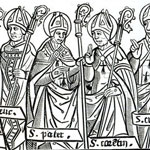Feronia
WordPress database error: [Incorrect DATE value: '']
SELECT * FROM wp_gigpress_artists AS a, wp_gigpress_venues as v, wp_gigpress_shows AS s LEFT JOIN wp_gigpress_tours AS t ON s.show_tour_id = t.tour_id WHERE show_related = 15 AND show_expire != '' AND show_status != 'deleted' AND s.show_artist_id = a.artist_id AND s.show_venue_id = v.venue_id ORDER BY show_date asc,show_expire asc,show_time asc
Queen of the Marketplace and Italian Wolf Goddess
It was not until 1999 that the Italian wolf (Canis lupus italicus) was recognized as a distinct sub-species of the wolf family, following extensive scientific studies that determined that no more than 240 wolves survived in the wild in Italy. (There are also Italian wolf populations in France and Switzerland.) Protection and conservation have encouraged the population to increase: as of November 2010, it is estimated that Italy has approximately 600 wild wolves. Although their numbers have improved, they are still an endangered species.
This belies the huge and significant role once played by wolves in pre-Christian Italian religion and spirituality. Wolves were the very symbol of Rome, intrinsic to the city’s origin story. A famous myth explains how a she-wolf nursed the abandoned twin baby boys, Remus and Romulus, keeping them alive so that they could eventually found the city of Rome. (Author J.K. Rowling tips her hat to this myth by naming lupine Hogwarts Professor Remus Lupin.)
It is no coincidence that a wolf suckled these important babies rather than a deer or a wild cat: Wolves are the sacred animals of Mars, the twins’ divine father. Wolves are also associated with other Italian deities like Faunus, Sylvanus, Diana, and Feronia, who is now probably the least famous of these spirits.
Feronia—her name is also sometimes spelled Ferronia– is an ancient, pre-Roman, Italian witch goddess. Ruler of the marketplace—a place traditionally associated with witches—she exerts dominion over magic, freedom, and prosperity. Once upon a time, if slaves managed to sit on a stone in her shrine, their freedom was gained.
With the advent of Christianity, Pagan religions were banned but Feronia was never forgotten. Demoted from goddess status, she survived as a witch in Italian folklore. According to folklorist Charles Godfrey Leland (1824-1903), most famous for his book Aradia or the Gospel of the Witches, Tuscan peasants considered Feronia a strega-folleta, or “witch-spirit.”
Feronia reputedly still roams the marketplace disguised as a beggar woman. Those who are generous to her find themselves blessed, as are those who are too poor to give, but who treat her with courtesy and respect. Those who treat her cavalierly or rudely find themselves cursed. One way of interpreting this legend is that, with the shuttering of her temples, Feronia must now extract her own sacred offerings.
- More information about Feronia and other deities associated with wolves, Italian or otherwise, may be found in The Encyclopedia of Spirits.
- More information about the connection between witches and the marketplace and the relationship between witches and wolves may be found in The Element Encyclopedia of Witchcraft.



